Natalie Bennett: Green Party Adds 1,000 New Members a Week Because 'Two Party Politics is Clearly Dead'
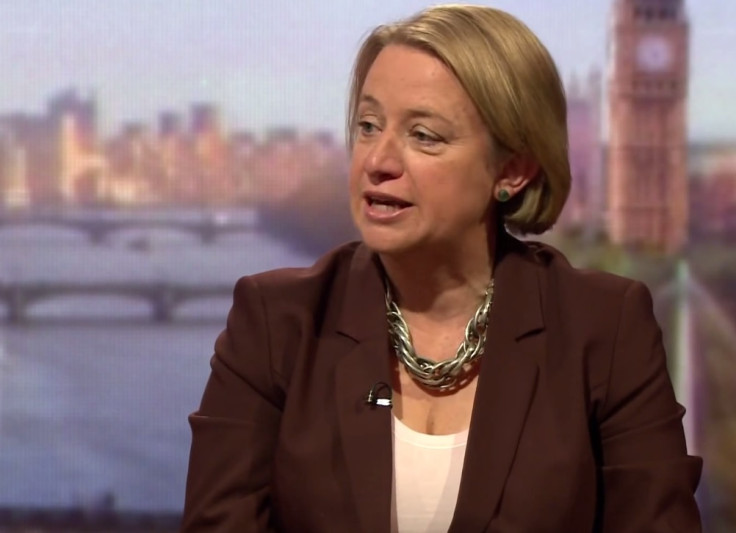
Despite the name, there's more to the Green Party than strong opinions on climate change and chaining yourself to wildlife threatened by diggers. It has things to say on austerity, on foreign policy and on political reform too.
We might start to hear much more from them. As Westminster-weary voters look past the big three parties, the smaller ones are on the up. Ukip, the populist eurosceptic party, has seen the most success, winning the European Parliament elections in the UK and two by-elections.
But it's also been a great year for the Greens. At the local elections, the party claimed 18 more council seats to a total of 38. And they notched up an extra MEP in the European Parliament elections, giving them three.
Though their overall vote share slipped by almost 1% to 6.91%, they finished in fourth place overall – two places above the Liberal Democrats. This has continued. Most polling shows them one or two points behind the Lib Dems. One YouGov poll in October put them fourth at 7%. The Lib Dems were on 6%.
"Two, or if we're being charitable two and a half, party politics is clearly dead. And that means, encouragingly, the first-past-the-post electoral system is on its last legs," Natalie Bennett, leader of the Green Party, told IBTimes UK.
Bennett said since 1 January the Green Party has seen a near 90% jump in its membership. Now it's adding members at a level of 1,000 a week. The "Green surge", as it has been dubbed, is gathering pace.
Which is why they're annoyed. Not at their rising popularity. But at the fact that despite this, Bennett has been excluded from the broadcasters' plans to hold another set of televised party leaders debates.
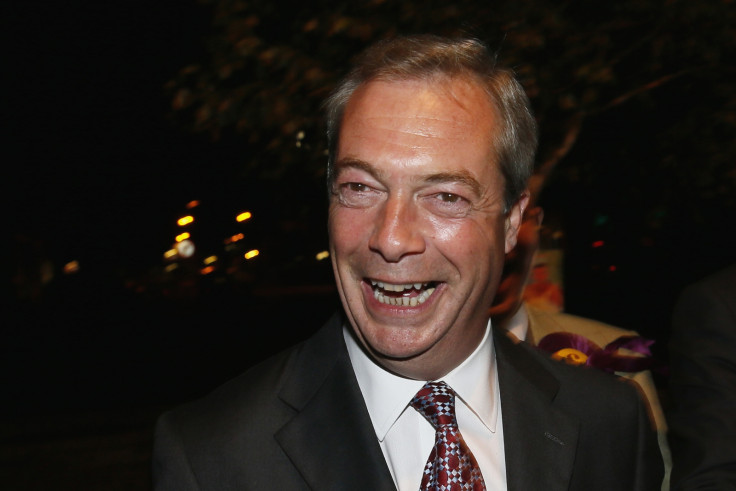
Nigel Farage, leader of Ukip, has been offered a place next to Cameron, Clegg and Miliband. Bennett and the Greens are lobbying hard for a seat.
"We're working on a three track process. We're obviously looking at mobilising public influence and we presented the petition with 260,000 signatures to the BBC on that," Bennett said.
"We're talking to broadcasters one-on-one ourselves. And we're talking to the lawyers. So there's basically three angles. It's very unpredictable."
At the 2015 general election, the Greens have their eyes on twelve seats. Bennett, who is standing in the Holborn and St Pancras seat, thinks they have a strong chance of winning three of them: Bristol West, Norwich South and their existing single seat, held by Bennett's predecessor Lucas, Brighton Pavillion.
If the Greens do win all three, they may get a call from Labour leader Ed Miliband. The polls suggest another hung parliament in 2015, probably with a slight majority Labour. He'd need a coalition to govern. But that's not what Bennett would offer.
She would enter a "confidence and supply agreement". Greens wouldn't back a no confidence vote – unless something extreme happened – and they'd vote through budgets. Offer Miliband stability, but little else.
"What that means is you don't get the ministerial cars, but you get to keep your principles. Those principles are very important to us," she said.
Thatcher's tax
There's a consensus among the three main Westminster parties on austerity. We need it. Though they quibble about the details, like the balance between spending cuts and tax rises, all agree that the government is living beyond its means. The deficit is equal to around 6% of GDP. The public debt pile has bloated to over £1.3tn. Does Bennett accept that we need austerity?
"We need to deal with the deficit. But ... what this austerity means [is] you get a social worker who used to be at a Sure Start centre [and] has now been made unemployed. She used to pay tax and National Insurance. She used to have a reasonable amount of money to spend in her local shops.
"Now she's on Job Seeker's Allowance. That's not the way to close the deficit. What we need to do is basically make big multi-national corporations and rich individuals pay their taxes. And if you look at the corporate tax take under this government, it's down 14%."
It's true that corporation tax receipts are down. But Chancellor George Osborne cut the rate to help generate more business, jobs and growth in the UK. And corporate tax receipts – which come from company profits – were unexpectedly dented because the eurozone crisis dragged down the UK economy.
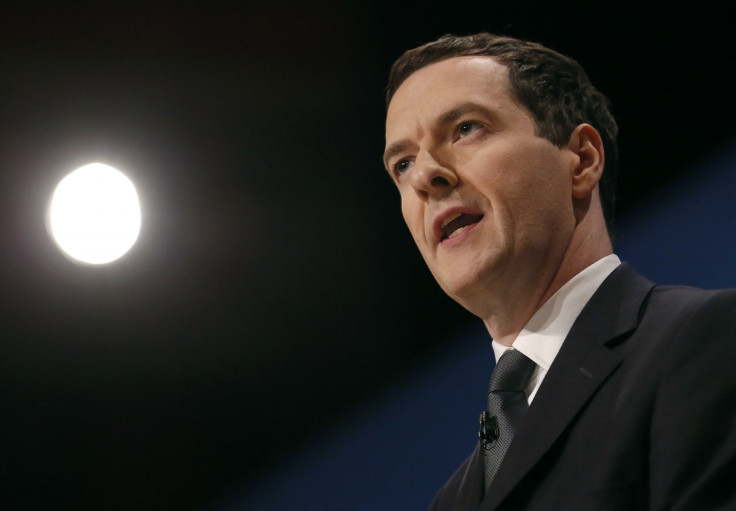
Bennett acknowledges that cutting the rate has knocked receipts. But she also thinks the government isn't working hard enough to crack down on tax avoidance. She wants the UK to force companies into country-by-country reporting. So they must declare, openly, how much they make in every country they do business as well as the tax they've paid and how many employees there are.
"So if it turns out that you're, let's say a coffee chain that serves really bad coffee, and 30% of your global profits are made in a tax haven where you have two men and an office dog, once you can see that then you can really do something about it," Bennett said.
"The first step is transparency. I think we're seeing quite a lot of push towards international action in terms of things like intra-group loans. There's an international push going on. We clearly can't continue as we are. The system is broken.
"But I think you don't need to wait for that international action. You can take action in Britain. In terms of rich individuals, particularly the richest 1% or 0.1%, that's why we're calling for a wealth tax to help balance things back up."
The trouble is, lawyers and finance experts tend to keep well ahead of the law. They know better than anyone how best to manipulate it. If you close one loophole, they'll just open another. Should Bennett rely on tax avoidance revenues as a deficit-closing strategy?
"I will be inviting you to look at our fully costed general election manifesto next year that will spell all of this out," she said. "We won't be putting all of the weight on that. We'll also be talking about raising the top rate of income tax on the highest earners. We'll be talking about raising the tax rate back to something sensible."
Something sensible? What's a sensible corporation tax rate? Here comes the surprise.
"Something like it was in Margaret Thatcher's day ... I can't remember exactly what it was, but it was something in the mid-40s. I'm not saying we're going to take it to that level. But something like more in the direction of."
Bennett clarifies that it's the big businesses who'd face a higher tax rate. She wants to bring back lower corporation tax rates for smaller businesses. The fact the rate is the same across the board is "disgraceful".
"When you look at small businesses just being battered from pillar to post by big business – there are very few corner greengrocers with several subsidiaries in the Cayman Islands – big business is dodging its taxes, not paying its staff properly and using things like zero hours contracts," she said.
Basic income
The Greens back a £10 minimum wage by 2020. They want to get tough on zero hour contracts. But what about the welfare system? What about the disincentives to work built in that mean you can be better off out of employment than in it? Bennett backs a radical simplification of the welfare system that could make things cheaper, while also making people better off.
"What we support is a citizens income, or a basic income. Which is the idea that you pay to every member of society, from the day they're born to the day they die, a basic sum every week that meets their basic needs. And that has an astonishingly low administration cost," Bennett said.
"Because basically, you exist, you get paid. We're not talking about a huge bureaucracy to administer it. Obviously, as soon as you start earning a decent amount of money you pay it back in tax. What it also does is immediately remove all benefit traps because this is an unconditional basic income.
"Maybe you're caring for an ageing relative. Some other relatives are visiting and your mate offers you a couple of days' work down the market at the weekend. You can go and do that. It doesn't mean that you suddenly find your housing benefit drops off and your Job Seeker's Allowance isn't paid and you're in an awful mess and you're off to the payday lender before you know it."
Celebrate EU immigration
There is a groundswell of anti-immigration rhetoric dominating British politics after years of open borders with the ever-expanding EU. Many British citizens feel they're losing out to immigrants, even though the academic research shows the economy is much better off.
Some Britons have struggled to cope with the cultural shift as the demographic of urban communities rapidly change. This alienation and frustration has fuelled the rise of Farage's Ukip, arguably the antithesis of the Greens.
The Greens support immigration. Especially EU immigration. Bennett said she "celebrates" free movement of people in the EU.
She wants better treatment of refugees and asylum seekers. She wants the reversal of rules that mean the British partner or spouse of an immigrant must be earning at least £18,500 for them to stay in the UK "which rules out about two third of women in Britain to start off with".
But does she feel there's an immigration problem, even if it's only one of perception?
"If you encounter people who say I'm worried about immigration, actually that's very well down the list of most people's concerns," Bennett said.
"If you say why are you worried about immigration, you usually get three things. Low wages, not enough housing – my kids can't get a council house – or crowded schools and hospitals ... I would say none of those are caused by immigration. They're caused by failure of government policy."
Bennett's solutions are to raise the minimum wage, build much more social housing by lifting the borrowing cap on local councils, and stop underfunding health and education services.
Islamic State
Something you don't hear often is Green Party opinion on foreign policy. So what does Bennett think about the Islamic State crisis in northern Iraq and Syria? What should the West, which is currently in the middle of an airstrike campaign against Isis militants, do?
...say to the region, you have to sort this out...
Two things and neither of them involve military intervention. Increase its humanitarian support for refugees and victims of Isis. And put diplomatic pressure on the likes of Saudi Arabia, Qatar and Turkey to come up with a Middle East-led solution.
But there is an urgent problem. Islamic State fighters have powerful US-made weapons they seized from the defeated Iraqi Army. Surely this demands an immediate military response like the one the West is engaged in?
"We've given places like Saudi some very hi-tech, very expensive weapons," Bennett said.
"It's not that the region doesn't have weapons to match [the Islamic State]. Whenever you keep coming in as the outside force, we know what happens ... So I think there is quite enough military hardware in the region for the region to act.

"If the region knows the West's going to come in, where's the impetus for them to take the difficult decisions to start to shift the way they do things?"
She said the only way to a lasting solution "is by the regional powers getting together, thrashing out a solution and agreeing to stick by it".
"Because the Isis conflict and the Syrian conflict are being fuelled by regional powers putting money, putting in weapons, fighting proxy wars," Bennett said.
"And places like Turkey, Qatar, Saudi, use every diplomatic pressure and instrument we have.
"Goodness knows given how much we've given arms and subsidised arms for Saudi there should be some pressure there – use that diplomatic pressure and force and say to the region, you have to sort this out."
Out of control Russia
On the Ukraine crisis, which has seen Russia annex the Crimea region and a war of financial sanctions break out between the Kremlin and the West, Bennett said there are "no easy answers". But who is to blame?
Some accuse the EU and Nato of inciting Russia by trying to build closer political and economic alliances with Kiev. Others say Russia has no right to push its military into Ukraine. If Kiev wanted closer relations with the West then that's a matter for the Ukrainian people.
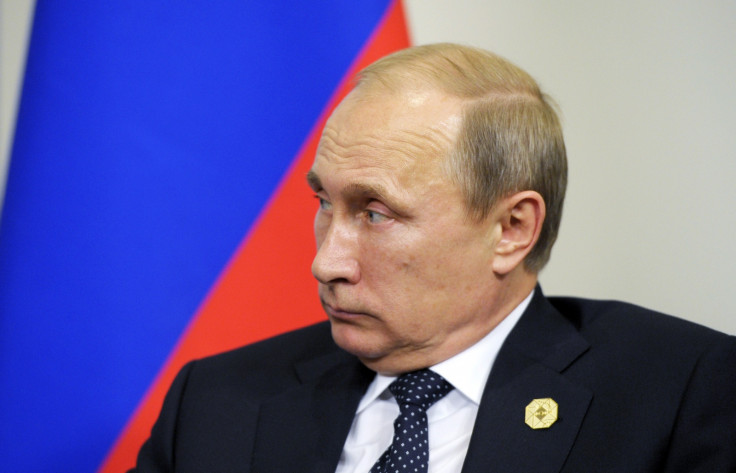
"I think there's truth in saying some really unwise steps were taken that were likely to stir up the Russian bear," Bennett said.
"But that doesn't take away any of the responsibility from Putin for doing what he did. Russia is the aggressor state and there's a huge and heavy, rightful legal and moral responsibility that then falls on Putin because of that.
"There's a real problem here. And there are no easy solutions because the Ukrainian regime that was inviting the West in wasn't exactly a clean hands ideally democratic regime.
"Russia of course is a hugely human rights-oppressing out of control state. So there are no easy answers in there. Diplomatic pressure has to be kept up to say sovereign states and boundaries must be respected. That's where the line's got to be drawn. Let's try to be a bit more sensible in the future."
No fracking
Inevitably, the conversation turns to environmental politics. And the biggest environmental story in Britain is the fossil fuel shale gas. Studies suggest there is bundles of the stuff under large parts of the country. But we don't yet know how much is extractable through the controversial fracking process, which involves minor tremors and chemicals.
I'm more and more confident by the day that we won't see any significant fracking in Britain.
The government has cut taxes on shale gas exploration and relaxed planning laws to make exploratory work easier for energy firms. If the UK realises its shale gas potential, it could drastically improve the country's energy security, generate significant revenue for the Treasury and be cleaner than importing liquefied natural gas from the Middle East.
Shouldn't the Greens be offering their grudging, but pragmatic, support for the shale gas industry? Not at all.
"We're winning the argument more every day. I'm more and more confident by the day that we won't see any significant fracking in Britain," Bennett said.
"We know there are significant local environmental impacts: lorry routes, water use and risks of spills. But the biggest thing is that it's a distraction. How often have you heard David Cameron or George Osborne talk about renewable energy versus how often you've heard them talk about fracking?
"Renewable energy is the proven technology. Largely mature technologies, and tidal is coming along very fast and tidal is very exciting, that we should be focusing on.
"While they're talking about fracking – and Lord Brown of Cuadrilla said about a year ago in five years' time we'll know if there's frackable gas in Britain ... it's a total uncertainty.
"And to build energy policy around a total uncertainty, when we could be going for the energy conservation and renewable energy options... There are so many things this government has done wrong, but I think energy policy is one of the things it'll be remember for as an absolute disaster area."
EU, TTIP and trains
The Greens are fans of Europe. But they sit somewhat uncomfortably in it. The EU is pushing further towards liberalisation. It wants to open up new markets and push for free trade.
And the tension between the Greens and the EU is no clearer than over the Trans-Atlantic Trade and Investment Partnership (TTIP), a potential multi-billion pound trade deal being discussed between Europe and the US which could significantly boost both economies.
"We're entirely opposed to the whole TTIP," Bennett said.
One of the proposals would allow US corporations to sue governments for being anti-competitive if they didn't privatise public services. And TTIP could make privatisation irreversible. The discussions over these issues are ongoing between the EU and US, but these are the main reasons behind Green Party opposition.
But there's another problem: harmonisation. Bennett uses American chickens as an example of why Greens hate TTIP.
"Americans, because their factory farming's so awful, they wash their chicken carcasses in bleach," she said.
"And harmonising could mean we have to allow their chickens in and also allow European producers to produce at that sort of level.
"You have to maintain the right to certain environmental standards, workers' rights standards, health standards. All those sort of things. TTIP fundamentally threatens that."
It isn't just TTIP that sits awkwardly with the Greens. One of their proudest policies is the renationalisation of the British railways, by bringing lines back into public ownership gradually as the franchises expire. Leaving aside the expense of this, it's also not allowed under European law. In the late 1990s, the UK signed a commitment to liberalise its rail system. Which it has done.
Others in Europe are doing the same, though much more slowly. Germany and France have even been fined by the EU for failings in rail liberalisation. Bennett seems to suggest just disobeying the rules.
"We are the only major political party who wants to bring the railways back into public hands. Not only do 70% of the British public want to bring the railways back into public hands, a majority of Tory voters want to bring the railways back into public hands," Bennett said.
But what about the EU rules?
"If you look at the French and to a large degree the Germans, there are ways around most things," Bennett said.
"At the moment, the key thing is the separation of the infrastructure and the operating companies. And there are ways around those things. What we want to do at the European level is abolish those.
"When we talk about reforming Europe we mean 180 degrees the opposite of what David Cameron means by reform."
Referendum
Cameron is seeking to reform Europe so he can justify staying in it. Under pressure from eurosceptic backbenchers who were starting to doubt his leadership, and concerned about the draining of Conservative voters to Ukip, Cameron promised an in/out referendum in 2017 - if he's elected again.
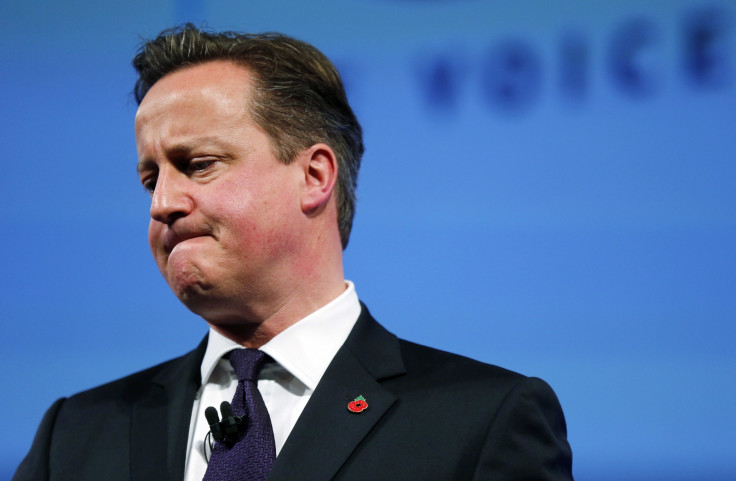
He wants the EU to tighten its free movement rules so he can temporarily cap the number of European migrants coming to Britain. Cameron has found little support. Angela Merkel, the German chancellor and most influential leader, has said there's no chance.
Labour's Miliband half-heartedly promised an EU referendum if more powers are transferred from Westminster to Brussels. But he stopped short of pledging a referendum no matter what. The Lib Dems don't want one at all. Bennett is clear on the Green position.
"We support a referendum because we believe in democracy. We trust in the voters. You have to be in your late fifties to have had any chance to vote on Europe. We wouldn't have necessarily started calling for it, but now it's on the table we say fine. Let's trust the voters."
She urges Miliband to get behind a referendum too: "But given Miliband's track record on most things, I think continuing to sit on the fence is the most likely Labour position."
Change in 2015?
Whatever happens at the 2015 general election, Bennett believes British politics is about to go through significant change. Firstly, the Scottish independence issue has thrust devolution and localism back onto the agenda. People want power back from the centralised state. They just don't trust Westminster anymore.
Secondly, first-past-the-post is an electoral system for two party politics. Now, on vote share, we're looking at five party politics. The system could be about to break, with MPs getting elected on just 25% of the turnout in some seats - or even less.
"If you look at Westminster, the last significant change was women getting the vote. We're coming up to the centenary of that. It's probably time for some more change," Bennett said.
"We've gone past the point of tinkering. There's lots of things we could suggest as the Green Party: an elected upper house, proportional representation in both houses, and all of that.
"That's why we're saying the whole thing is broken past any repair really. So what we need is a people's constitutional convention to start drawing up a whole constitution from scratch. And give it to the people, give them resources and say: what should it look like?"
© Copyright IBTimes 2024. All rights reserved.






